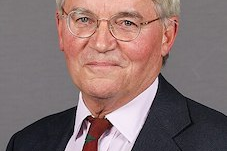Campaigners protest as UK lifts ban on cloning
Pro life groups have condemned Friday's overturning of a High Court ruling against government legislation on human cloning. Government lawyers went before the Appeal Court to argue that the creation of embryos using the technique that made the sheep clone Dolly could be controlled under the 1990 Human Fertilisation and Embryology Act. The ruling means researchers who want to carry out cloning research will be able to go ahead, on licence from the Human Fertilisation and Embryology Authority. In November, Mr Justice Crane had ruled against the government after the Pro-Life Alliance highlighted the act's definition of an embryo as the union of an egg cell and a sperm cell - the Dolly technique, cell nuclear transfer (CNR), does not use sperm to create an embryo. Health Secretary Alan Milburn immediately introduced the Human Reproductive Cloning Bill - rushed through Parliament in December - to outlaw the placing of any embryo in a woman's womb that was not created by a fertilisation process. During the hearing, Mr Milburn's representative, Kenneth Parker QC, asked the court that an organism created by CNR should be classified as an embryo. The lawyer told Lord Phillips, Lord Justice Thorpe and Lord Justice Buxton that such an organism did fall within the meaning of the 1990 Act even if it was not the product of fertilisation. "CNR creates an organism which is exactly the same as an embryo," he told the judges. Allowing the appeal, the Master of the Rolls Lord Phillips, sitting with two other judges, said: "I hold that an organism which is CNR (cloning) falls within the definition of the Human Fertilisation and Embryology Act." Anthony Ozimic, from the Society for the Protection of Unborn Children, said: "The Court of Appeal's judgement is clearly wrong. Although a human embryo created through cloning is just as much an embryo as one created by fertilisation, it is clear that cloned human embryos are not covered by the Human Fertilisation and Embryology Act 1990. The Court has interpreted the law in an alarmingly elastic way so as to allow destructive research on human beings created through cloning. Such shifting of the goalposts is unacceptable. Extending the definition of an embryo in the Act is a matter for Parliament, not for the courts." He said: "Both the time limits and consent provisions for the use of embryos in the 1990 Act only apply to embryos created through fertilisation, not ones created through cloning. It appears that anyone who gives a blood sample could be cloned without their knowledge or consent, and their clone grown in the laboratory for many weeks or months". He concluded: "Despite this disappointing defeat, we commend the Pro-Life Alliance for the battle it has fought. The fight to vindicate the human rights of all embryos, cloned or otherwise, will continue." Peter Garrett, LIFE's Director of Research, said: "This is a politically motivated decision designed to get the government off an embarrassing hook and to pave the way for the granting of licenses for cloning embryonic human beings. The ruling will be met with equal glee by the bio-pharmaceutical industry and by Tony Blairs pro-cloning inner-circle. "In handing down his ruling The Master of the Rolls, Mr Justice Phillips, argued that a purposive construction must be put upon the 1990 Act. Since that Act intended to regulate the use of human embryos and since the product of cell nuclear replacement is a human embryo, the products of CNR must be covered by it. "But you could equally argue that the purposes of the 1990 Act included banning human cloning. The technique of CNR was unknown then. Had it been, it would have been prohibited. All other methods of cloning were banned in 1990. "So Mr Justice Phillips is having it both ways. The law can be strained to permit what is politically acceptable; it is not strained to put an obstacle in the way of the Government and pharmaceutical industry. "To add insult to injury the Court awarded costs against the Prolife Alliance and refused leave to appeal to the Lords. This is extremely harsh given the public service which the PLA was doing in seeking a clarification of the law. In our view the Court of Appeal has acted outrageously."


















